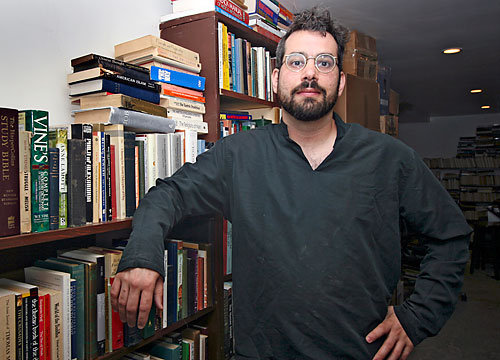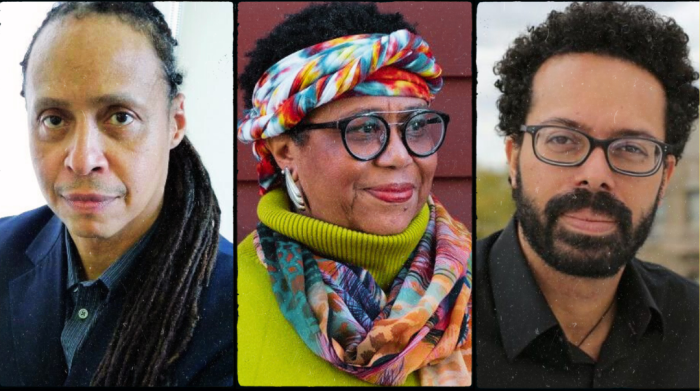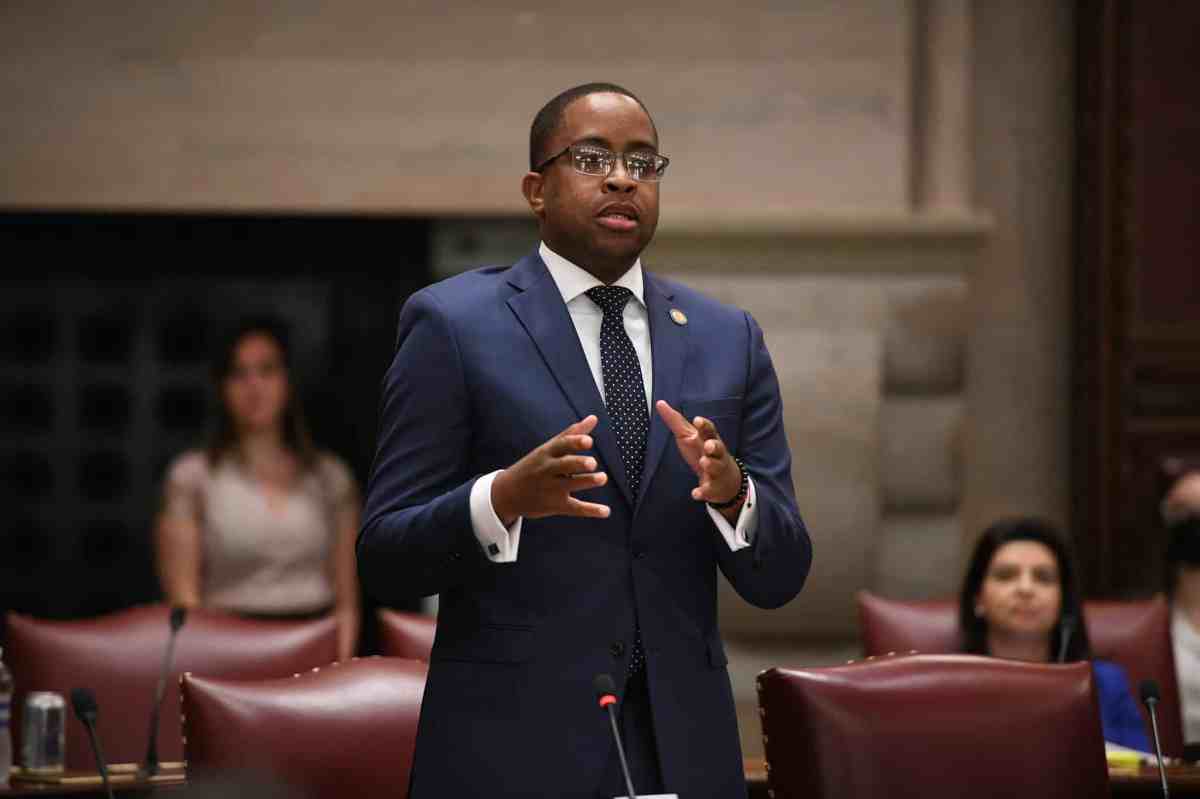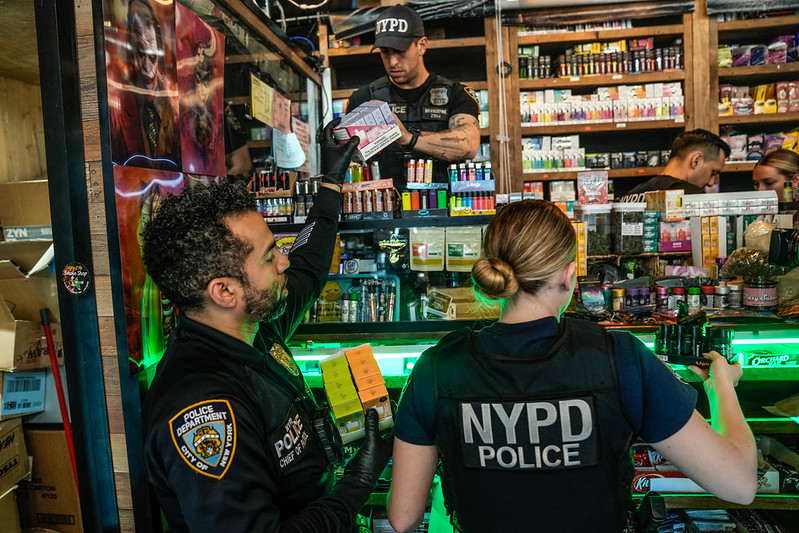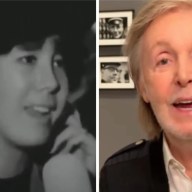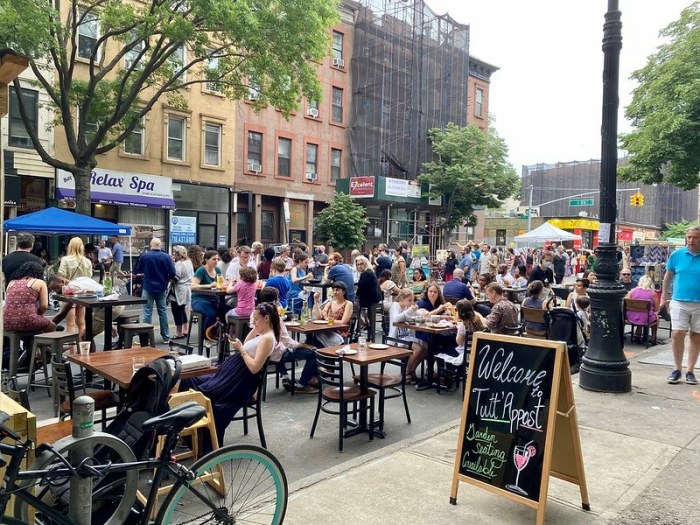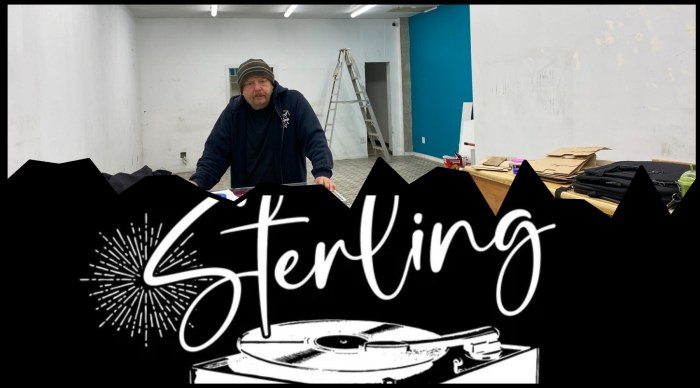Book ’em!
Members of the growing Prospect Heights writing scene claim that their neighborhood has already surpassed the bookish barrio of Park Slope as the borough’s foremost literary community.
“If you were to do a survey of what people do for a living block by block, you would find more writers, editors and literary professionals living in Prospect Heights than Park Slope,” said bookstore owner Adam Tobin.
Tobin himself is a symbol of the march of writers (and their fans) towards Prospect Heights; he just moved his independent bookshop, Unnameable Books, from Bergen Street in Park Slope to Vanderbilt Avenue.
In this tale of two neighborhoods, the difference is rent, said Tobin.
“Writers can’t afford Park Slope rents unless they are very successful,” he noted. “And neither can bookstores.”
Tobin’s decision to move Unnameable Books across Flatbush Avenue follows the shuttering of several bookstores on Seventh Avenue in Park Slope — closures that leave the neighborhood with just two bookshops: Community Bookstore and Barnes and Noble.
But it’s not just the arrival of Unnameable Books that has made Prospect Heights a bestseller for writers.
Like Park Slope, the serene neighborhood boasts brownstone buildings, access to multiple train lines for easy trips to one’s publisher’s office in the city, and walking access to the Central Branch of the Brooklyn Public Library and Prospect Park.
And while Park Slope still boasts big name writers like Paul Auster, Jonathan Safran Foer and Nicole Krauss, Prospect Heights has attracted literary luminaries including author Keith Gessen and New Yorker writers George Packer and Philip Gourevitch — who’s also the editor-in-chief of the Paris Review (snap!).
Some Prospect Heights wordsmiths are hesitant to say that their neighborhood has ousted Park Slope as Brooklyn’s biggest literary scene — but they agree that the community is undergoing a writing revolution.
“It’s true — there are a lot of writers around,” said Prospect Heights writer Pamela Brown. “When I hang out in Park Slope and I go to Ozzie’s, there are always groups of people collaborating and writing. Now that’s starting to happen in our cafes.”

Brown’s husband, non-fiction writer Jonathan Soffer, agrees that the growth of the Prospect Heights literary community is quantifiable by the number of laptops and the quality of the books that residents bring to Joyce Bakeshop — the neighborhood’s answer to the Park Slope writers hangout the Tea Lounge.
And when Unnameable Books opens its Vanderbilt location this month, it could bring even more life to the increasingly vibrant scene, he noted.
“It’s changed so much here — and I think the bookstore is going to be the catalyst for a lot of things,” said Soffer, author of the forthcoming, “Ed Koch and the Rebuilding of New York.”
Even though Unnameable Books is leaving Park Slope, the community’s writers, editors, and literary professionals claim that their neighborhood’s chapter as a book world capital isn’t finished.
“I don’t think it’s a bad sign for the community — I just think it’s sad,” said Scott Adkins, co-founder of the Brooklyn Writer’s Space, a Garfield Place facility that gives more than 140 Brooklyn wordsmiths room to plumb their depths. “There are plenty of writers who have put their roots down here. I don’t think the community is going to shrink.”
Catherine Bohne, owner of the Community Bookstore on Seventh Avenue, said that Park Slope’s loss of Unnameable Books is due to changes in shopping habits — not a migration of writers across Flatbush Avenue.
“We are the first, and now we are the last,” Bohne said, referring to her independent bookshop. “It means that everybody is shopping online — and they should stop.”
Some Park Slope writers admit that high rents are pushing writers — and bookstores — out of the neighborhood or convincing them to settle elsewhere in Brooklyn.
But that could actually be a perk, according to Park Slope writer David Shenk.
“On the surface, this is a loss to Park Slope, but maybe this will be a net gain,” said Shenk, author of “The Immortal Game” and forthcoming, “The Genius in All of Us.”
“Maybe this new store will have more space and reach out to writers in both neighborhoods,” he added.



